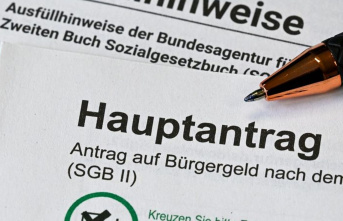In the wage dispute in the public sector, warning strikes have largely paralyzed local transport in several federal states. In order to put pressure on municipal employers, the Verdi union had called on employees to stop working on Friday. The focus was on local public transport.
In the larger cities of Baden-Württemberg, almost all trains and buses remained in the depots. The Verdi union was very satisfied with the start. "Everyone is there," said Reiner Geis from the Verdi district of Südbaden Schwarzwald. In Stuttgart, on the other hand, S-Bahn trains run despite the delays. They are served by Deutsche Bahn.
Even in Saxony's largest cities, traffic came to a standstill as far as possible. In Leipzig, the regular tram and bus services were discontinued, as announced by the Leipzig Transport Authority (LVB). According to a spokesman, the vehicles of the Dresden public transport company were also standing still. Only a few buses operated by subcontractors are on the road.
Action together with Fridays for Future
In North Rhine-Westphalia, the one-day warning strike started when the transport companies started operating at around 2.30 a.m., according to a Verdi spokesman. The focus is therefore on the Ruhr area and the Rhineland. Above all, residents of the larger cities have to be prepared for considerable restrictions, for example in Cologne, Dortmund and Düsseldorf. S-Bahn and regional trains are not affected by the warning strikes.
The warning strikes also focused on Hesse, Lower Saxony, Bremen and Rhineland-Palatinate. The action is to take place together with the climate activists from Fridays for Future, who are also calling for demonstrations on Friday.
Negotiations for around 2.5 million employees
The general manager of the Confederation of German Employers' Associations (BDA), Steffen Kampeter, criticized the joint action as "a dangerous crossing of borders". In his view, strikes are permissible in order to reach collective agreements and must not interfere with general political goals.
Deputy Verdi chairwoman Christine Behle called this criticism a "huge mistake". The goals of the activists are well compatible with those of the unions.
The negotiations for the approximately 2.5 million federal and local employees had been tough since they started in January. Verdi and the civil servants' association dbb are demanding 10.5 percent more income, but at least 500 euros more per month. There had been no rapprochement in the second round of negotiations last week.











